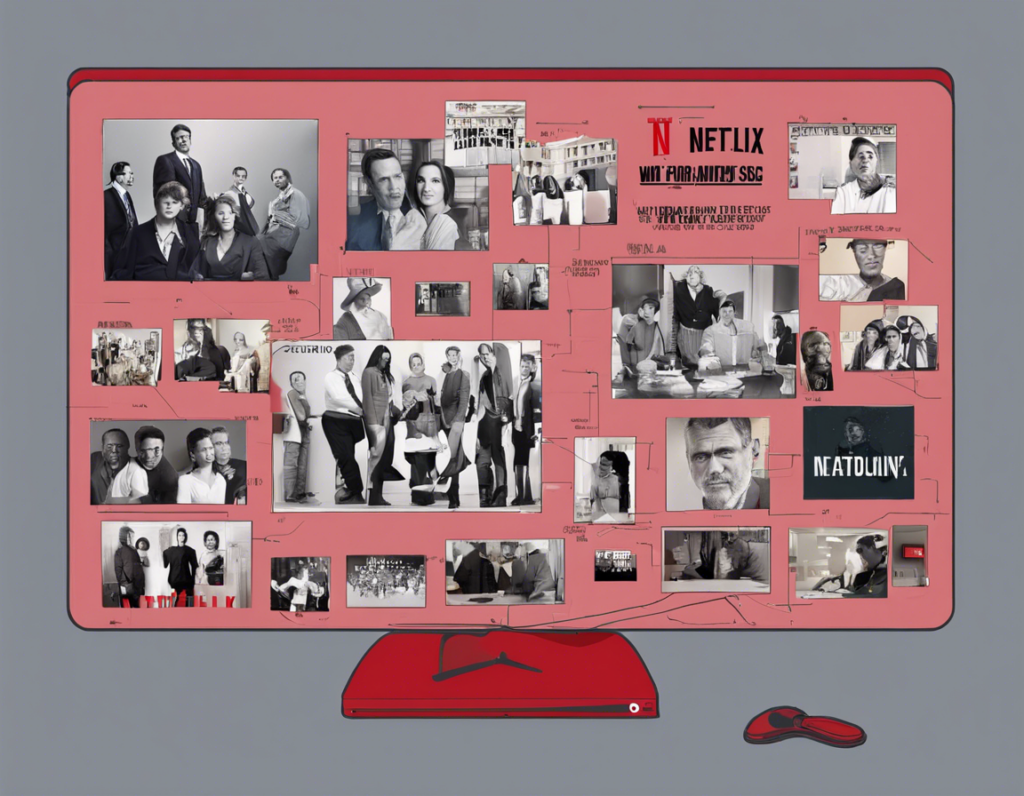In the ever-evolving landscape of streaming services, Netflix remains a dominant player, providing a wide array of content to its subscribers worldwide. One common question that arises among viewers and industry enthusiasts is, “Who owns Netflix?” Understanding the ownership structure of this entertainment giant can provide insight into its operations, strategic decisions, and future prospects. In this article, we delve into the intricacies of Netflix ownership, exploring its history, major shareholders, corporate governance, and implications for the streaming industry.
History of Netflix Ownership
Netflix was founded in 1997 by Reed Hastings and Marc Randolph as a DVD-by-mail rental service. Over the years, the company transitioned into the digital streaming space, revolutionizing how audiences consume content. In terms of ownership, Netflix went public in 2002, listing its shares on the NASDAQ stock exchange under the ticker symbol NFLX. Its initial public offering (IPO) marked the beginning of a new chapter for the company, allowing investors to own stakes in one of the pioneering entities in the streaming industry.
Major Shareholders of Netflix
As of [current year], Netflix has a diverse shareholder base that includes institutional investors, mutual funds, individual stakeholders, and company insiders. While the majority of shares are held by institutional investors such as Vanguard Group, BlackRock, and State Street Corporation, founder Reed Hastings also retains a significant ownership stake in the company. As of [latest available data], Hastings owns approximately 2.5% of Netflix’s outstanding shares, making him one of the largest individual shareholders.
Corporate Governance Structure
Netflix operates under a conventional corporate governance structure, with a Board of Directors overseeing key strategic decisions and providing guidance to the executive team. The Board is composed of independent directors, industry experts, and senior executives, ensuring a balance of perspectives and expertise. Reed Hastings serves as the Chairman of the Board and co-CEO, playing a pivotal role in shaping Netflix’s direction and growth trajectory.
Implications of Ownership on Netflix’s Strategy
The ownership landscape of Netflix influences its strategic approach in several ways. With institutional investors holding significant stakes, the company faces pressure to deliver strong financial performance, maintain subscriber growth, and expand its global footprint. Shareholder activism and engagement also play a role in shaping Netflix’s strategic decisions, prompting management to pursue initiatives that enhance shareholder value and respond to market dynamics.
The Future of Netflix Ownership
Looking ahead, the future of Netflix ownership is likely to be influenced by various factors, including competition in the streaming space, technological advancements, and shifting consumer preferences. As the company continues to invest in original content, expand into new markets, and innovate its streaming platform, the ownership structure will play a crucial role in determining Netflix’s long-term success and shareholder returns.
Frequently Asked Questions (FAQs) about Netflix Ownership
1. Does a single entity own a controlling stake in Netflix?
- No, Netflix is primarily owned by a diverse group of institutional investors, individual stakeholders, and company insiders.
2. How much of Netflix does founder Reed Hastings own?
- Reed Hastings owns approximately 2.5% of Netflix's outstanding shares as of [latest available data].
3. Are there any activist investors influencing Netflix’s strategy?
- While Netflix has faced some shareholder activism in the past, the company's management largely drives its strategic direction.
4. Can individuals purchase shares of Netflix on the stock market?
- Yes, Netflix is a publicly traded company, and individuals can buy and sell its shares on the NASDAQ stock exchange.
5. What role does the Board of Directors play in Netflix’s ownership structure?
- The Board of Directors provides oversight, guidance, and strategic direction, ensuring that the interests of shareholders are represented.
6. How does Netflix’s ownership structure compare to that of other streaming services?
- Netflix's ownership structure differs from its competitors, with a mix of institutional and individual shareholders shaping the company's ownership landscape.
In conclusion, ownership is a fundamental aspect of a company’s identity and direction, and understanding who owns Netflix provides valuable insights into the dynamics of the streaming industry. As Netflix continues to innovate, expand its content library, and navigate the competitive landscape, its ownership structure will undoubtedly play a key role in shaping its future trajectory and success.
